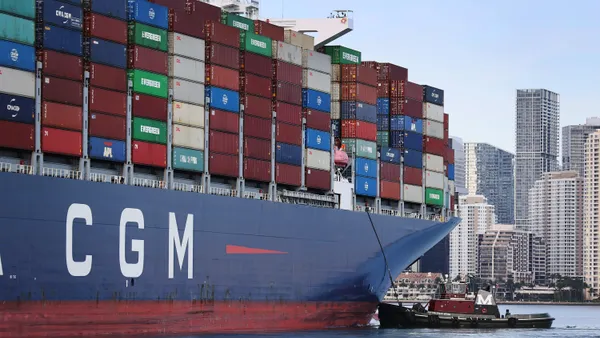Canadian border agents will begin job action at 12:01 A.M. EST Friday unless a new labor deal with the country’s government can be reached before then, the union announced Monday.
The new strike deadline is the latest salvo in ongoing negotiations between the two parties. While union representatives threatened to strike last week, the parties on Friday agreed to extend mediated talks through Wednesday. Now, union representatives are making it clear a new strike is not entirely off the table if the extension fails to result in a deal.
The negotiating parties include the Treasury Board of the Canada Secretariat, on behalf of the government, and a bargaining unit from the Public Service Alliance of Canada and Customs and Immigration Union, on behalf of thousands of workers at the Customs and Border Services Agency. The parties have been operating without a contract for over two years.
“We are still hopeful we can avoid a strike and potential disruptions at Canada’s borders,” Public Service Alliance of Canada National President Sharon DeSousa said in a statement. “No worker wants a strike, but we’ve set a firm deadline for this government to come to the table with a fair agreement.”
The union represent about 9,500 Canadian border agents and support staff, who are stationed at airports, land entry points, marine ports and commercial ports of entries.
In a statement after a potential strike was halted this past Friday, the Canadian government said talks have been productive and it remains optimistic a deal can be reached. The government did not issue a statement Monday.
Since border agents are deemed essential workers, even in the event of a strike, Canada’s borders must remained staffed and cannot close. However, if a strike happens, shippers trucking freight between the U.S. and Canada can expect longer processing times and traffic back-ups at more than two dozen border crossings.
Logistics experts say it is better to be prepared.
Paul Brashier, vice president of drayage and intermodal with ITS Logistics, said Monday in an email to Supply Chain Dive that if a strike happens, shippers should consider booking freight to U.S. ports of entry. The only effective way to move any freight entering Canada would be to “dray off from ports, cross dock and one-way trucking,” he said.
ITS Logistics and other service providers have implemented contingency plans in anticipation of a strike by border agents. Brashier said his company set up drayage options from the ports of entry in Canada and one-way trucking options from Prince Rupert to Vancouver and Montreal “to avoid the IPI leg of the ocean container voyage.”
Brashier is confident logistics services providers can work through a strike-fueled transportation disruption. The industry managed through the COVID-19 pandemic and disruptions caused last summer during contract talks with Canadian port workers.
“One thing that was a positive coming out of Covid and the labor disruptions of last year is that there is infrastructure and capacity in place to handle situations like this,” he said. “Though there will be headwinds, it should be fairly navigable.”














